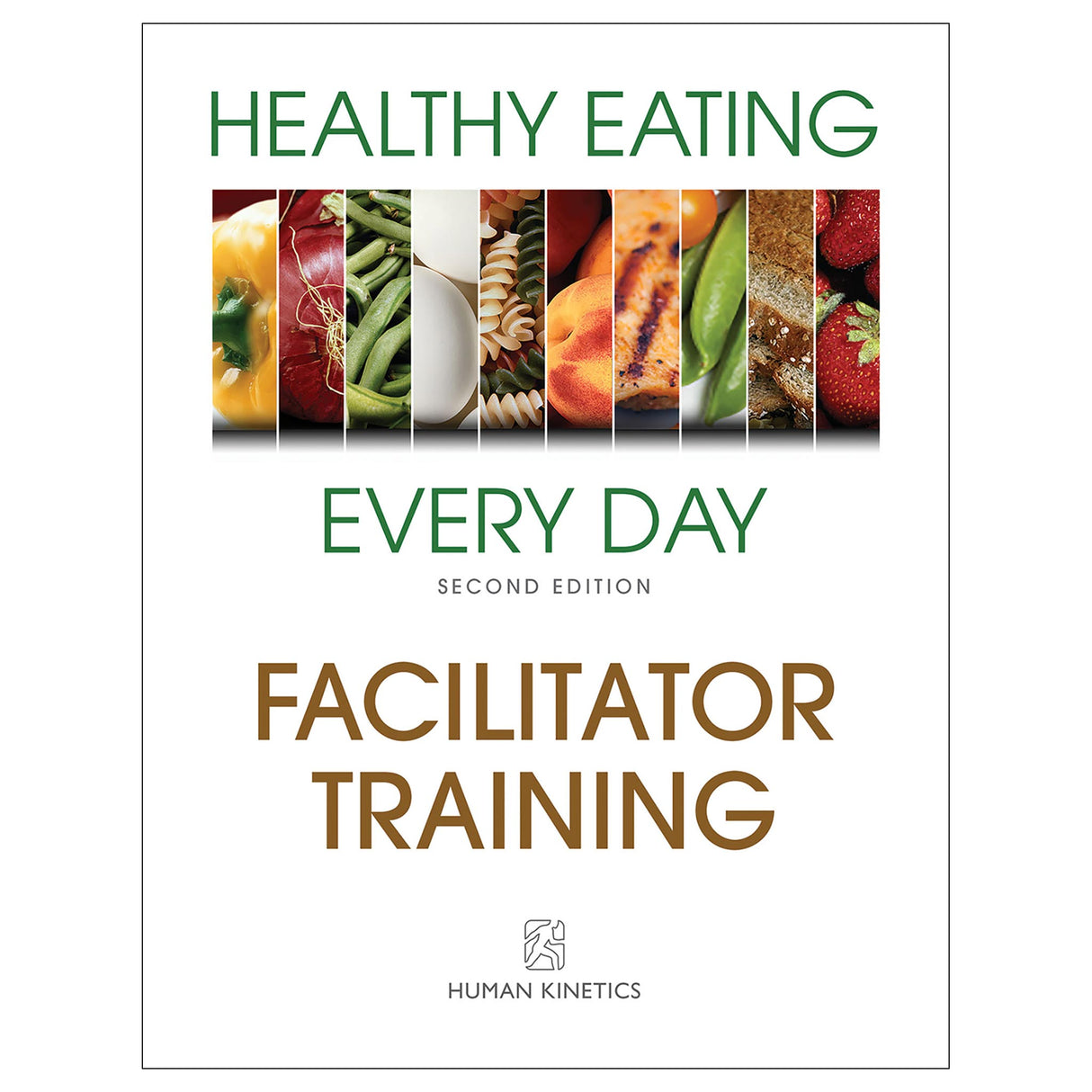Healthy Eating Every Day 2nd Edition Online Facilitator Training Course With Print Book
Author: Human Kinetics
$488.95 CAD
Human Kinetics strongly recommends that you complete your exam within the calendar year of your date of purchase to ensure approved credits do not expire for your organization.
- Healthy Eating Every Day, Second Edition, book
- Print workbook
- Online facilitator resources
- Online exam
This self-directed course enables you to work at your own pace without the help of an instructor. Begin by reading Healthy Eating Every Day, Second Edition, the book that each of your participants will use as you take them through the program. Then, as you move through the facilitator workbook, you will have the opportunity to evaluate what you learn by answering questions at the end of each chapter and completing the reflection activities. The online facilitator resources include lesson plans, handout materials for your class participants, administrative forms, and program management and marketing materials—everything you need to help your participants make healthy eating a regular part of their lifestyle.
Need trained course facilitators? Administrators may purchase courses in bulk (two or more) to assign to facilitators. Once the order is complete, the purchaser will receive an email containing a link and instructions for distributing the courses. If you need to purchase a single copy on behalf of a facilitator, please call us to place your order.
Learning Objectives
After reading the book and workbook and successfully completing the 75-question exam, you will be able to do the following:
- Cite the mission and major principles and philosophies of the HEED program.
- List the five stages of readiness to change.
- Describe the cognitive and behavioral skills taught in HEED to assist participants in the behavior change process.
- Explain how to administer the four A’s of facilitating change and use listening behavior and supportive feedback skills.
- Identify the major learning objectives, special concerns, and special preparation needs for each session.
- Describe how in-person and remote sessions are structured and delivered.
- Identify the key features of the HEED plate model and the way in which it compares to the USDA’s MyPlate.
- List the six HEED goals and explain why they are a focus of the HEED program.
- Cite situations in which a HEED facilitator should refer a participant to another health professional.
- Identify sources for obtaining accurate nutrition information.
- Explain how to evaluate the outcomes and processes of your HEED program.
Audience
Wellness providers at private sector workplaces, park and recreation departments, community colleges, and community-based organizations, such as government agencies, military installations, hospitals and health care providers, public health organizations, and senior centers. Also for personal trainers and wellness coaches seeking to round out their services within their scope of practice.Introduces you to the mission and principles of the HEED program and how applying these concepts can help your participants improve their health and quality of life.
Chapter 2. Behavior and Health
Explains the ways certain behaviors are connected to good health.
Chapter 3. The Case for Healthy Lifestyles
Discusses the public health guidelines and the research that has proved the benefits of improving health through healthy eating.
Chapter 4. Four Primary Theories
Explains why theories such as social cognitive theory are important to helping people change their eating habits.
Chapter 5. The Transtheoretical Model
Describes the primary theory used in HEED: the transtheoretical model, often called the stages of change model.
Chapter 6. Scientific Basis for HEED: The Lifestyle Nutrition Study
Explains the solid scientific foundation on which your HEED program is based.
Chapter 7. Principles of Adult Learning
Explores how adults learn best and what that means for you as a facilitator, including how you can improve learning and keep participants’ attention in class.
Chapter 8. The Facilitator’s Role
Describes general counseling principles that will improve your effectiveness as a facilitator and explains the importance of the areas of ethics and confidentiality.
Chapter 9. The Logistics of Facilitating
Describes how to prepare for each class session and how to maximize participation in your program.
Chapter 10. Evaluating Assessments, Food Logs, and Nutrition Misinformation
Reviews how to analyze participants’ HEED assessments and food-tracking logs.
Chapter 11. Evaluating Your HEED Program
Explains how to evaluate the processes and outcomes of your HEED course.
Chapter 12. Adaptations and Special Uses of HEED
Describes what you can and cannot change along with adaptations you might make for special populations or different settings.
Chapter 13. Management of Your HEED Program
Explains how to identify budget items, how to complete a budget worksheet, and how to market and promote HEED to your target audience—everything you need to build a cost-effective, high-caliber program.





